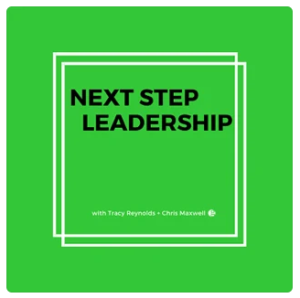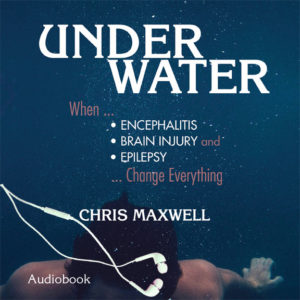How do you begin a book? Start with humor? Offer an inviting story? To lure readers to dive in and stay in the stream of words, what is the best literary enticement?
How should I begin my book, Things We’ve Handed Down: Twelve Letters I Leave for You? I asked myself and my friends that question. Those questions. This book is a book about, well, books. Lessons I learned from books. Lessons about sadness and gladness, sorrow and joy, life and death, about what I have learned from books about each of those topics.
I decided to begin with a chapter about Philip Yancey’s book, Disappointment with God: Three Questions No One Asks Aloud.
And I decided chapter one needed to begin with a question. A short, serious, no-humor-at-all question. This is it: “When was the last time you cried?” What a way to start my thoughts on disappointment with God, right?
I believe it was right. I believe it was the right way to write, to begin, to initiate a collection of chapters about life’s chapters, life’s seasons, life’s lessons—all related to books which I held, to books which have also held me through so many chapters and so many seasons and so many lessons.
Philip Yancey’s books have handed down hope to me. Thought his honesty and his insight, I’ve been able to see better, to see life better, to see disappointments better.
In this chapter, I write about the difficulties and disappointments people are facing. Problems you are enduring. Struggles I am experiencing.
Last year this time, I was writing this chapter.
This year this time, I am still learning how God helps us through life’s complications.
What about you? What disappointments and worries and hurts and questions control your moods, your decisions, your actions, your attitudes? How can you become better at bringing your disappointments to God and letting Him bring you peace?
Take time to think about it. Read chapter one of Things We’ve Handed Down. Read Yancey’s Disappointment with God. Read and pray the Psalms. Write your thoughts. Reflect and cry and confess your questions. And choose to begin this new chapter of your life with God.










I think that recently the Lord has been teaching me what it looks like to bring my sorrow and hurts to him. To not hide my wounds from the healer, but to lie open–vulnerable–and exposed. It has been very scary. However, the Lord has given me more confidence than ever that he hears the cries of his people and he listens to the voice of those who seek His face.
This blog post reminds me of the raw, relatable struggle many people face when trying to reconcile faith with the hardships they endure. The post touches on a universal theme—wondering where God is during our deepest disappointments. This resonates because it suggests that faith, rather than eliminating life’s challenges, helps us find meaning and hope in the midst of them. The idea that disappointment does not signify an absence of God but can be an invitation to deeper trust is especially impactful, highlighting the importance of resilience and faith during life’s hardest moments. This reflection offers comfort by framing life’s challenges as opportunities for spiritual growth, where God’s presence can be found even in our doubts and disappointments. It’s a reminder that questioning doesn’t undermine faith but can make it more authentic, reminding us of the steadfast support we can find in a relationship with God through all seasons of life.
It is so important to be vulnerable before God. We have to be honest with Him in order to experience a true relationship with God. Be honest about our disappointments and our weaknesses and insecurities eventually brings true peace, security, and freedom. Having doubts and questions is ok. God wants us to bring it all to Him even if we do not feel like we have all the answers. God already knows our hearts but He wants us to have the strength to have true conversation and honesty between ourselves and Him
I really appreciate the way that you started the chapter. So often I think people are afraid to be vulnerable not only with each other but with God as well. “When was the last time you cried?” Despite how simple this question technically is, it is so hard to answer. You have to admit that you had a moment when everything became too much and the walls, we had built around ourselves, came down or cracked, even if only for a few minutes. And it is important to let yourself cry sometimes; it can help you feel better even if nothing actually changed. But there is no reason to go through this alone or feel ashamed for crying.
I enjoy the way you started your book. Not in the sense of it brought happiness but in the sense of fresh air that I received from the realness, the reality, and the truth of it all. Most would wait to warm up to such a topic, and to such a truth. You didn’t and I want to thank you for that.
It was a great idea to start the book off the way you did because it’s not something we think about as Christians. I try to push and keep my disappointments with God to the back of my head. There were times when worries about whether I was going to make it through the semester hit me and it controlled my mindset, emotions, behaviors, etc. There were also times when I didn’t know where I was going next or where a door would seem open and it would close, causing me to doubt and be confused. Acknowledging these disappointments has helped me face them instead of turning away because God knows my mind and my heart, I can’t keep anything from Him so why try? I know I can become better by trusting that He is my peace and He will lead me in the right direction
Disappointment with God is not an indicator of a lack of faith, but a reality of being a human who, as a being made in the image of God, can feel disappointment. I find peace in the grace we’re shown when we feel that way with Him. I find rest in knowing that, no matter how I feel, my disappointment can never be long-lasting; He is always for me.
I love the way you started this book. It introduces the idea that the books contents are to be taken seriously. Many people will pick up a book just to read it and not rapt learn from it. You may joke and write happily in the rest of the book but this first question really nails that this book is to be taken in an educative way and in a reflective way.